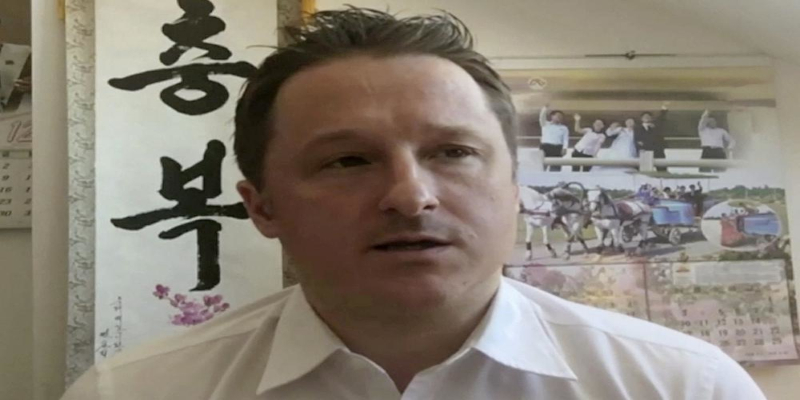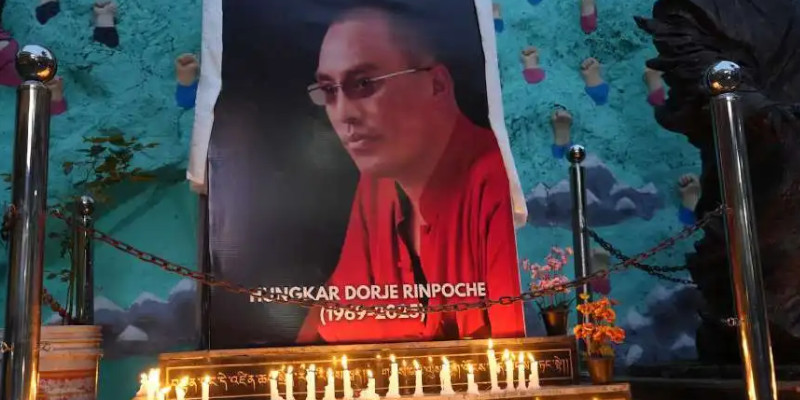Dharamshala, 14th August: A Canadian entrepreneur was sentenced to 11 years in prison in a spying case tied to Beijing’s efforts to press his country to release a Huawei executive, provoking a rare display of support for Canada from the US and 24 other countries. China is ratcheting up the pressure as a Canadian judge considers whether or not to extradite the Huawei executive to the US to face charges relating to alleged violations of Iran trade sanctions. On Tuesday, a court dismissed an appeal of a Canadian executive’s sentence in a drug case that was dramatically upgraded to death following his arrest.
After Huawei’s Meng Wanzhou was arrested at the Vancouver airport on Dec. 1, 2018, entrepreneur Michael Spavor and a former Canadian ambassador were jailed in what critics called “hostage politics.” Spavor was punished by a court in Dandong, North Korea, roughly 210 miles (340 kilometers) east of Beijing. The government has disclosed scant specifics about the case other than accusing Spavor of transmitting sensitive material to Michael Kovrig, a former diplomat, beginning in 2017. Both have been detained in solitary confinement and have had little interaction with Canadian diplomats.
Spavor’s punishment was harshly criticized by the Canadian government. It said he and Kovrig were being held “illegally” and demanded their immediate release. Outside a detention center when the punishment was pronounced, Ambassador Dominic Barton claimed the court procedure in Spavor’s case “lacked both fairness and openness.”
According to Barton, Spavor has two weeks to determine whether or not to appeal. In a show of solidarity, diplomats from the United States, Japan, the United Kingdom, Australia, Germany, and other European countries, as well as the European Union, gathered at the Canadian Embassy in Beijing. They’ve also made separate appeals, requesting that Spavor and Kovrig be given fair trials or be released.
Meng Wanzhou, Huawei Technologies Ltd.’s chief financial officer and the company’s founder’s daughter, was detained in the United States on charges of lying to the Hong Kong branch of the British bank HSBC about probable dealings with Iran in violation of trade prohibitions. Meng’s lawyers argue that the prosecution is politically motivated and that the charges against her are unconstitutional in Canada.
The arrest has been attacked by China’s leadership as part of a US effort to stifle its technological progress. Huawei, a network equipment and smartphone manufacturer is China’s first global tech brand and is at the center of US-China tensions over technology and information security. Although Beijing insists that Meng’s issue is linked to the detention of Spavor and Kovrig, Chinese officials and state media routinely mention the two men when discussing whether or not Meng should be allowed to return to China.
Earlier, Barton said he didn’t think the cases in China were happening at the same time Meng’s case was moving forward in Vancouver. According to Barton, diplomats from the United States and Germany visited the Dandong detention center but were denied entry. According to Barton, Chinese authorities used images obtained by Spavor at airports where military planes were present.
Spavor worked in China but had strong ties to North Korea through tourism and other commercial activities, which put him in touch with the isolated communist state’s leadership. Spavor had been detained for 975 days as of Wednesday, according to the Canadian Embassy.
In March, Kovrig, who was imprisoned in December 2018, went on trial. There has been no indication of when a decision will be made. Robert Schellenberg’s 15-year prison sentence for narcotics smuggling was abruptly raised to death in January 2019 following Meng’s arrest, and a Chinese court denied his appeal on Tuesday. Before it can be carried out, the matter must be reviewed by China’s supreme court.
In disagreements with Beijing over human rights, the coronavirus, and control of the South China Sea, Canada and other countries, notably Australia and the Philippines, face trade boycotts and other Chinese pressure. The US has cautioned that Americans traveling to China face a “heightened risk of arbitrary detention” for reasons other than enforcing laws.
China has attempted to exert pressure on Prime Minister Justin Trudeau’s government by putting import restrictions on canola seed oil and other Canadian products. Meanwhile, when the Chinese government demanded a probe into the origins of the coronavirus outbreak, Beijing has halted imports of Australian wheat, wine, and other products.
PC: AP







Leave a Reply